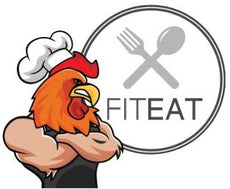When it comes to vegetarianism, one of the most common questions is what can replace meat products in a diet? There are many different types of meat alternatives on the market, and it can be difficult to decide which ones are best for you.
According to popular opinion, meat is one of the most valuable sources of protein. However, protein can also be supplied to the body from plant products. You can prepare various types of cutlets, meatballs and pates, which are able to compete in taste with real meat dishes, and at the same time are much healthier, because they contain less saturated fatty acids.
Why is it necessary to replace meat in a vegetarian diet?
Although meat contains a lot of unhealthy fat, it is also a source of many valuable, beneficial ingredients that our body needs in everyday functioning. Meat provides us primarily with proteins and iron - here it is unrivaled in terms of their quantity. We can also find B vitamins, phosphorus, zinc, copper, sulfur and magnesium. Below you will find a list of products that allow you to supplement the deficiencies of protein, iron, vitamin B and other vitamins and minerals that can be found in meat.
Protein in a vegetarian diet: valuable sources
Beans
Beans are cheap and are a real source of protein. All species of beans have a lot of vegetable protein - up to 22% of their content. This plant also supports the natural gut flora and cleanses the body while preventing the development of colon cancer.
Lentils
Lentils, which belong to the legume group, contain about 30% of easily digestible protein. It comes in many varieties. You can make soup or salad with it, and even delicious cutlets.
Soy
Soy is one of the most popular products in the vegetarian boxed diet and is used as a substitute for animal protein. The most famous soybean product is tofu, which works well as an alternative to cutlets or nuggets. It is tasteless in itself, but the taste of meat is possible thanks to the right spices and heat treatment. Other soy products well known to vegetarians and vegans include milk, yogurt and soy cheese.
Whole grain cereals
It is worth choosing whole grain flours and uncleaned types of groats. Each uncleaned grain contains protein, fiber, minerals and vitamins. In the purification process, i.e. obtaining white flour, as much as 25% of protein is lost.
Quinoa
This plant comes from South America and provides a protein containing essential amino acids for the human body. It is also a source of minerals such as phosphorus, calcium, potassium, iron, magnesium and B vitamins.
Amaranth
In addition to protein, it contains many minerals, B vitamins and vitamins A, E and C, as well as easily digestible iron, unsaturated fatty acids that contribute to lowering cholesterol.
Iron sources in a vegetarian diet
Where to find Iron? In a vegetarian diet, they will provide it to us, among others dried fruit, almonds, parsley, lentils, beans, broccoli, sea algae, and nettle. If we want to ensure the proper absorption of Iron, let's make sure to combine it with ingredients rich in vitamin C, which facilitates this process. Vitamin C can be found primarily in citrus, black currant or pepper.
B12 sources in a vegetarian diet
People on a vegetarian and vegan diet should also take care to control their vitamin B12 levels. Due to the fact that it is naturally available only in products of animal origin, they are particularly vulnerable to deficiencies of this ingredient! Depending on the restrictiveness of the diet, the source of vitamin B12 can be products such as eggs, cottage cheese, Swiss cheese, yogurts, plant milk (soy, almond, coconut). Otherwise, this vitamin should be taken in the form of supplements.
Sources of fatty acids in a vegetarian diet
To avoid fatty acid deficiencies, vegetarians should include nuts, soybeans, oils (soybean, rapeseed) and linseed in their diets. Healthy fats are also found in fish and eggs.
Sources of Zinc in a vegetarian diet
The main source of Zinc in a vegetarian diet is cereal products. Zinc can also be found in seeds, nuts and legumes.
Calcium sources in a vegetarian diet
Dairy products are of course the best source of calcium. However, in a situation where we want to eliminate dairy from our diet, calcium can be found in soy milk and tofu. It is also present in leafy vegetables, mainly kale, broccoli and cabbage, as well as dried figs, white beans and almonds.
Sources of Iodine in a vegetarian diet
We can look for Iodine in fish and seafood. However, when our diet excludes their consumption, we find it in sea algae, iodized salt, edam cheese, hazelnuts, broccoli and spinach. Sea algae is a product that enthusiasts of Asian cuisine will certainly eagerly reach for.
Vegetarian box diet: what are the benefits?
A vegetarian diet requires knowledge and commitment to planning and preparing meals. Unfortunately, a change in the way of eating often does not entail a sufficient understanding of the subject of composing wholesome vegetarian meals, or other family members or roommates do not want to give up eating meat, and we do not have time to prepare meals on our own. Eating a vegetarian diet is not as easy as it may seem, and its improper management can contribute to many health problems resulting from protein and other nutrient deficiencies. For this reason, if we want to follow a vegetarian diet, it is worth considering using a dietary catering service that is fully tailored to your needs. A boxed vegetarian diet is a great idea to start your adventure with giving up meat products!

